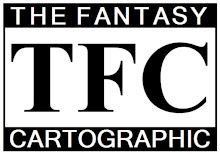So I introduced my idea for Tuesday Talkies awhile back and decided that I needed to get to posting.
First, a question to anyone who might be reading. One of my earliest memories of language creation in D&D comes from an article in an old Dragon magazine that listed a rough orc vocabulary. The listing was maybe two pages long, but it assumed great importance in my very first campaign as my older brother played a half-orc cleric/assassin who worshipped Gruumsh. Good times. Anyway, does anyone remember that article and, if so, do you know the issue of Dragon in which it appeared? The help would be much appreciated.
Now, back to the topic at hand, which is the plan for future Tuesday Talkies. If you were to visit the Language Creation Society, you would find a nice little web document called the Language Construction Kit that goes through the basics of language creation. It is an easy read, and it explains a step-by-step method of developing your own language. It really is a very useful read if you are at all interested in trying this yourself.
Basically, according to the Kit, the steps for language creation are:
1. Decide on the sounds of the language
2. Create the lexicon
3. Create the grammar
4. Design an alphabet
5. Decide how the alphabet is modified for cursive handwriting
6. Translate the desired text
There is nothing wrong with that list, as far as I can tell. It seems to have worked for lots of people. Unfortunately, my mind doesn't quite work that way--I actually want to start a little earlier in the process than that. Before thinking about the language itself, I want to think about the words that will eventually appear in the language, what they mean, how they go together, etc. To illustrate what I am actually trying to say here, let me offer an example.
In my case, I am interested in eventually developing an elf language and a dwarf language. Before thinking about any of that stuff above, I have started thinking about what kinds of words would appear in those two different languages. It probably goes without saying, but a people who are most at home in verdant forests, surrounded by the brilliant greens of virgin wilderness, and subject to the whims of the organically natural world would probably develop a language drastically different from a people who live deep underground and whose focus is survival in winding caves and vast caverns where, perhaps, it is possible to go weeks or months without seeing the sky. How do the elves think about and express time? How do dwarves? How do elves express directions, and how do they do it differently than dwarves? The same question can be asked for measuring things, describing moods and emotions, counting things, and on and on.
Another example: The Eskimoes have many, many words for something for which the English language has only one: 'snow'. How many words to describe how many different versions of 'green' would elves have? How many would dwarves? You can bet that the elves would have many, probably based upon different types of plants or plants in different seasons. The dwarves might have several, but they are probably based upon the shades of various minerals in the rock through which they mine.
(Now honestly: In a roleplaying game situation, who cares how many versions of the word green either uses? Is that really going to affect our fun at the gaming table? NO! But those are the types of things that I'll think about when working on these languages. I believe that by thinking about those things, the resultant language will be more consistent, more believable, and more real.)
In terms of characterizing objects, different languages do different things. Some assign genders to all nouns, some do not. For us in the real world, assigning genders is one method of characterization. But in a world where magic exists, where the divine routinely interacts with the mortal (if only through clerical spells), where good and evil, law and chaos might have more than just abstract meaning, can these be used to characterize nouns or verbs or even adjectives for that matter?
How I choose to answer those questions is going to go a long way toward developing these languages. What you will see here if you visit on any given Tuesday is an expansion of these ideas, an answering of these types of questions, and the slow development of these two tongues. I hope to have at least two languages when this thing is done--whenever that will be. I'm really excited about this, and I hope that they will find use in your games.
Subscribe to:
Post Comments (Atom)








Dragon # 75, "Even orcish is logical."
ReplyDeleteGoogling the phrase in quotes, with filetype:pdf, will turn it up.
Thanks for that. I suppose google is the key to everything...
ReplyDelete